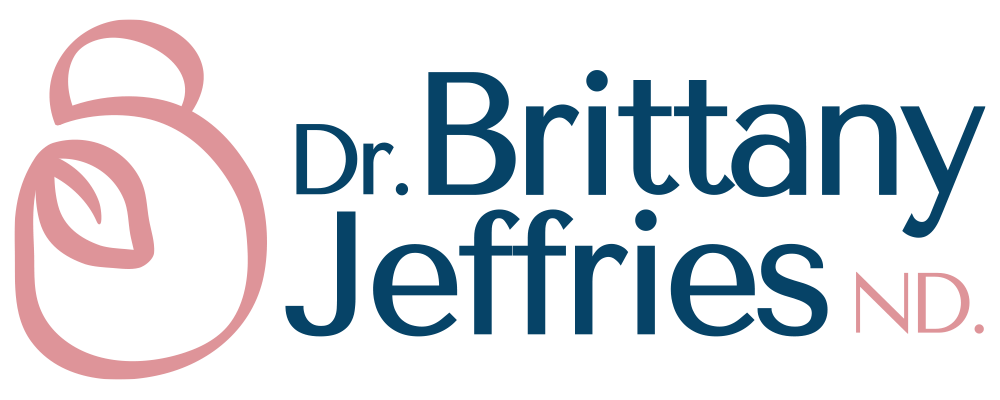Caffeine, Alcohol and Your Hormones: What You Need to Know
When it comes to women’s hormone health, what you drink matters. Caffeine and alcohol are a regular part of many routines but have you ever wondered how they impact your hormones, energy, mood, and menstrual cycle?
Let’s break down what you need to know about caffeine, alcohol, and hormone health, and how to make informed choices based on your goals.
Caffeine and Your Hormones
Caffeine is a stimulant most commonly found in coffee, tea, energy drinks, and chocolate. While moderate intake is generally considered safe, caffeine can influence several key hormones:
1. Cortisol (Your Stress Hormone)
Caffeine stimulates cortisol production. If you’re already under stress, consuming caffeine, especially first thing in the morning or on an empty stomach, can increase that stress response. Chronically elevated cortisol can disrupt your cycle, impair ovulation, and contribute to fatigue or burnout.
Tip: If you struggle with anxiety, fatigue, or irregular cycles, consider switching to a lower-caffeine option like matcha or rooibos tea, or delaying your coffee until after breakfast.
2. Estrogen Metabolism
Caffeine is processed in the liver, the same place estrogen is metabolized. For some women, especially those with genetic variations in liver detox pathways, caffeine may slow down estrogen clearance. This could worsen estrogen-dominant symptoms like PMS, breast tenderness, or heavy periods.
Tip: Support your liver with cruciferous vegetables (like broccoli and kale) and hydration if you consume caffeine regularly.
Alcohol and Your Hormones
Alcohol impacts hormones in a different way. Even a few drinks a week can affect:
1. Blood Sugar and Insulin
Alcohol can spike or crash blood sugar, depending on what you drink. Blood sugar instability affects insulin, which in turn affects ovulation and can worsen PCOS symptoms.
2. Estrogen Levels
Alcohol can increase circulating estrogen, which may contribute to estrogen-dominant symptoms or increase breast cancer risk over time.
3. Sleep and Hormone Regulation
Alcohol disrupts REM sleep and reduces overall sleep quality. Since hormone balance relies on deep, restorative sleep, this can contribute to hormonal imbalances over time.
Tip: Limit alcohol to 1–2 drinks per week, ideally with food, and choose options like dry red wine or clear spirits with soda water to minimize blood sugar impact.
How Caffeine and Alcohol Affect Your Menstrual Cycle
Here’s how these substances can influence your cycle:
Menstrual (Days 1–5):
Caffeine may worsen cramps due to vasoconstriction.
Alcohol may increase bleeding or prolong recovery.
Follicular (Days 6–13)
Most women tolerate caffeine better here.
Avoid excess alcohol that can impact egg quality.
Ovulatory (Days 14–16)
Caffeine may increase energy but can worsen anxiety.
Alcohol may delay or blunt the LH surge which delays ovulation.
Luteal (Days 17–28)
Caffeine can worsen PMS symptoms.
Alcohol may worsen mood swings or sleep issues.
Balancing Caffeine and Alcohol for Hormone Health
You don’t have to give up coffee or wine completely. But tuning in to how your body responds during different phases of your cycle can help you feel more balanced.
5 Tips to Support Hormones:
Eat protein and healthy fats with your morning coffee.
Avoid caffeine after 2 PM to protect sleep quality.
Choose mocktails or herbal tea during the luteal phase.
Drink extra water to support detox pathways.
Consider liver support herbs like milk thistle or dandelion root (check with your ND first).
When to Get Support
If you notice signs of hormone imbalance (like irregular periods, painful PMS, fatigue, or mood swings) it may be time to evaluate your caffeine and alcohol habits. Testing your hormone levels and working with a naturopathic doctor can help guide you to a plan that supports your long-term health.
Your Body, Your Choices
Caffeine and alcohol aren’t “bad”, but how they affect your hormones depends on your unique body, stress levels, and health goals. Small shifts in timing, dose, and type of beverage can have a big impact on how you feel throughout the month.
Book a Hormone Health Consult
At Momentum Health Kelowna, we help women rebalance their hormones with individualized care and realistic strategies. Ready to get to the root of your symptoms?
Book your consultation today and start feeling like yourself again.

